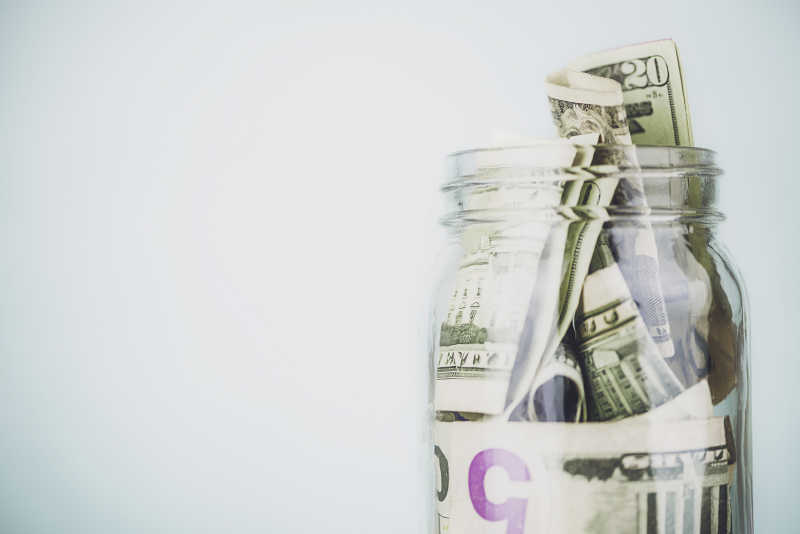The Benefits of Bankruptcy
Feb. 29, 2024
 Bankruptcy may seem daunting, but in reality, it's a legal process designed to help individuals and businesses regain control of their financial future. It's a way for you to address those overwhelming financial burdens that keep you awake at night.
Bankruptcy may seem daunting, but in reality, it's a legal process designed to help individuals and businesses regain control of their financial future. It's a way for you to address those overwhelming financial burdens that keep you awake at night.
At Vivona Pandurangi, PLC, when we talk about bankruptcy, we're referring to a legal proceeding that allows you, whether as individuals or businesses, to eliminate or repay your debts under the protection of the bankruptcy court. It's not an easy step to take, but it's a step towards regaining financial stability.
Different Types of Bankruptcy
Bankruptcy comes in various forms, known formally as "chapters," each designed for specific circumstances. The most common are Chapter 7 and Chapter 13 for individuals, and Chapter 11 for businesses.
Chapter 7 bankruptcy, also called "liquidation bankruptcy," is aimed at those who can no longer pay their debts and have limited means. It allows for the elimination of most unsecured debts by liquidating assets to repay creditors.
Chapter 13 bankruptcy is better suited for individuals who have a regular income and wish to retain their property. It involves reorganizing debts and creating a repayment plan over three to five years.
Chapter 11 bankruptcy is predominantly used by businesses, permitting them to continue operating while restructuring their debts under court supervision. However, it can also apply to certain individuals with large debts and assets.
Understanding the specific requirements and benefits of each bankruptcy type is essential for choosing the right path toward financial recovery.
Benefits of Bankruptcy
Despite common beliefs, bankruptcy is not a bad thing. In fact, there can be significant advantages to going through the process and letting go of insurmountable debt.
Fresh Start
One of the greatest benefits of bankruptcy is that it offers you a fresh start. By eliminating or reducing your debts, you can rebuild your financial stability and start anew. It's like hitting the reset button on your financial life.
Stopping Collection Calls
Filing for bankruptcy triggers what's known as an "automatic stay." This halts collection efforts from creditors, meaning those relentless collection calls, lawsuits, wage garnishments, and other collection actions will stop during the bankruptcy process. It's a welcome respite that allows you to focus on rebuilding rather than dealing with constant pressure.
Protecting Your Assets
Bankruptcy isn't about losing everything; it's about finding a way forward. Bankruptcy provides exemptions that allow you to protect certain assets from being liquidated to pay off debts. This means you can retain essential assets like your home, car, and personal belongings.
Psychological Relief
The psychological impact of debt can be profound, leading to stress, anxiety, and even depression. Bankruptcy can offer psychological relief. Knowing you have a structured plan to handle your debts or that they have been discharged altogether can lift an immense emotional weight, allowing you to focus on your future rather than feeling trapped by your past.
Opportunities for Financial Education
Bankruptcy isn't just an endpoint; it's also a learning opportunity. The process requires debtors to participate in credit counseling and debtor education programs. These programs provide valuable financial education, equipping individuals with the knowledge and tools they need to manage their finances effectively, avoid future debt, and make the most of their fresh start.
The Impact on Credit
One of the most common concerns about bankruptcy is its impact on an individual's credit score. Filing for bankruptcy can indeed lead to a significant reduction in your credit score, and the bankruptcy will remain on your credit report for up to ten years for Chapter 7, and up to seven years for Chapter 13.
However, this impact doesn't have to be permanent. With the right financial behaviors, you can start rebuilding your credit immediately after the bankruptcy proceedings are complete. By developing a budget, maintaining low credit card balances, and ensuring timely payment of bills, the process of gradually repairing credit can begin.
Additionally, secured credit cards and installment loans taken after bankruptcy can also contribute to rebuilding credit, demonstrating to creditors and credit bureaus your commitment to financial responsibility.
The Long-Term Benefits of Bankruptcy
Bankruptcy can pave the way to a more secure financial future over the long term. It can help rebuild credit over time, which might seem counterintuitive at first. Once your debts are discharged, you’re in a position to manage your finances without an unmanageable burden. This fresh slate makes it possible to make timely payments and regain the trust of creditors, gradually improving your credit score.
Additionally, relief from debt can lead to better job prospects. Without the stress of financial struggles, you can focus on your career and personal growth opportunities. It can also improve your mental well-being, as the reduction in stress and anxiety can contribute to a more focused and happier life.
While bankruptcy might seem like an end, it can actually be the beginning of a smarter and more stable financial path.
Life After Bankruptcy
Once you've filed for bankruptcy, there's a light at the end of the tunnel. It's an opportunity to start fresh and rebuild your financial life. You can improve your credit by obtaining secured credit cards, making timely payments, and practicing responsible financial management. It's about learning from past financial mistakes to ensure a brighter financial future.
At Vivona Pandurangi, PLC, we understand that bankruptcy is a difficult journey. But remember, it's not the end; it's a new beginning. We're here to guide you every step of the way, providing professional and authoritative knowledge to help you navigate this challenging time.
